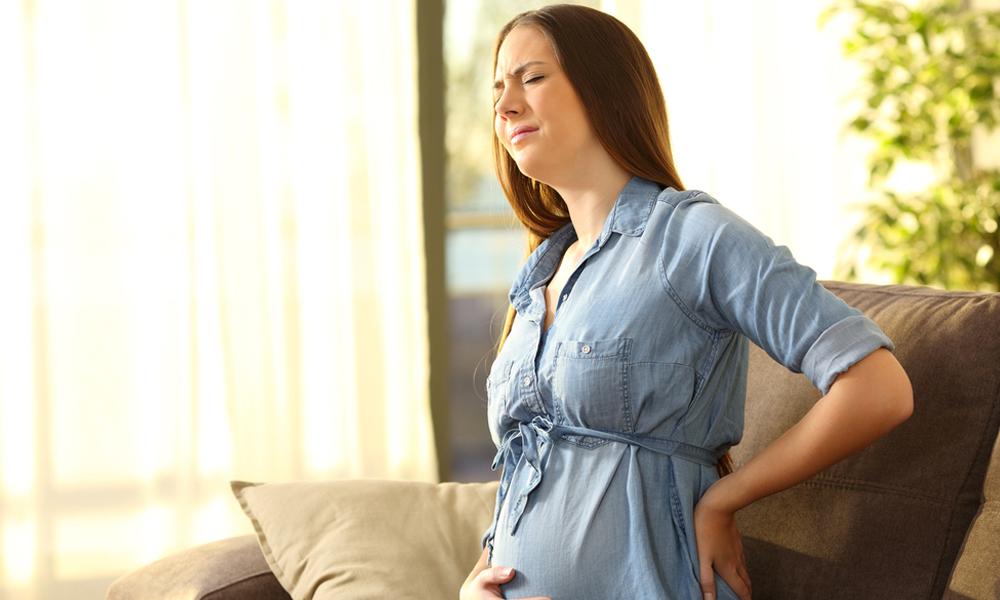
Raising a family is one of the most rewarding and challenging parts of life and having arthritis shouldn't stop you from experiencing it. You will probably have to take a few additional things into consideration during each stage of your family's development, from pregnancy with arthritis to the teenage years, but there is no reason for your arthritis to prevent you from having a happy and healthy family.
Pregnancy and arrival
Deciding whether or not to have a baby is a big decision and knowing you have to go through pregnancy with arthritis can be daunting. However, the fact is that giving birth with arthritis is now a common and relatively straightforward process.
As each pregnancy is different, and the effects of arthritis vary greatly from person to person, you should discuss with your doctor whether you may need to adjust your treatment before you get pregnant. Some medications taken by women with arthritis or their male partners with arthritis may need to be stopped for several months before trying to conceive. If possible, talk to your rheumatologist at least 6 months before you and your partner plan to conceive.
During pregnancy, some women find that their arthritis remains unchanged, improves or worsens. It is best to try to lose some weight before you get pregnant - this will not only help your joints but will make it easier to become pregnant and make for an easier and less complicated pregnancy.
First Trimester (Weeks 1 - 13)
During the first trimester, the baby's vital organs are forming, and it is during this time that medications and other lifestyle habits (such as smoking, drinking, diet and drug use) can affect that development. Some arthritis medications are safe to continue before and during pregnancy, while others may need to be stopped. Your rheumatologist will work with you to find the right arthritis management plan for both your health and the health of your unborn baby. The first trimester is when many women find the symptoms of their pregnancy are most pronounced e.g. fatigue, morning sickness, heartburn and dizziness. If it's all getting too much for you, remember that you're not superwoman and take some time out to look after you and your baby. If the fatigue is too much for you, talk to your doctor for information on managing your arthritis symptoms.
Second Trimester (Weeks 14 - 27)
This is one of the most exciting times of pregnancy - many women share the news of their pregnancy with others, and their bump starts to show. Luckily, some of the more unpleasant symptoms of the first trimester fade and energy levels usually return to normal. In fact, about half of women with rheumatoid arthritis experience an improvement in arthritis symptoms beginning in the second trimester and lasting until after the baby is born. However, some women may find their symptoms worsen, particularly if you had to stop or change some of your medications. Unfortunately your arthritis symptoms will usually return once the baby is born, so it will be important to see your rheumatologist shortly after childbirth to assess your arthritis management.
Third Trimester (Weeks 28 - 40)
The final trimester can prove especially difficult for women with arthritis. During the last 12 weeks, the joints and muscles may be affected and problems with weight-bearing joints (hips, knees, ankles and feet) may become worse due to increased weight. Muscle spasms in the back can occur as the uterus grows and the spine curves slightly to support it, leading to pain, numbness and tingling in the legs. In the last 12 weeks breathing can be difficult, especially if your arthritis affects your lungs or rib joints and you may experience shortness of breath - if this occurs, you should rest whenever you can.
Delivery
Towards the end of your pregnancy, talk to your rheumatologist, obstetrician and/or midwife about how your arthritis could influence your delivery. The big day has arrived! Many women with arthritis can have a normal labour, and there are many different positions in which you can give birth so if, for example, you have difficulty because you cannot move your legs enough in one position, the midwife will discuss with you some other suitable positions. In some cases, women with arthritis will be advised to deliver their baby by caesarean section. If your arthritis affects your spine, getting an epidural (injecting pain-relieving medications into the spine) may not be possible. In this instance, you should discuss alternative pain relief with your doctor before delivery and, if a caesarean section is necessary, it may need to be done under general anaesthetic.
Remember, try not to get too preoccupied by the idea of a perfect birth. Instead surround yourself with healthcare professionals who you trust and keep your focus on that all-important end goal, a healthy, happy baby and mum.
Babies
So the hard work is done now.... right? Caring for a new baby is equal parts exciting and exhausting for all new parents. And as parents with arthritis, you may experience some extra challenges. Many women do feel a sense of relief after the birth, but some also feel sorrow or a combination of the two. If you have rheumatoid arthritis you may experience a flare up in the weeks following your pregnancy, at the same time as you are adjusting to your new role as a parent.
If you are feeling low in mood and energy, having trouble sleeping or eating, feeling scared, sad or hopeless for than two weeks, seek help. You can talk to your GP, child health nurse or your partner, family and friends. The Perinatal Anxiety and Depression (PANDA) hotline (1300 726 306) may also be helpful.
If you are on medications that suppress your immune system, it is important that you are extra vigilant for infection as you may be more prone to it than others, but the majority of these infections can be cleared up quickly and easily with antibiotics.
Breastfeeding
If you plan to breastfeed, you should discuss the best medication choices with your doctor, including your rheumatologist, so that the best plan for you and your baby can be developed. Many arthritis medications are safe for use when breastfeeding, as they don’t pass into breast milk, but others are not and need to be avoided.
Feeding may mean sitting in the same position for a long time on a daily basis so make sure you are comfortable! This may involve sitting in a supportive chair, using breastfeeding pillows or cushions under your elbows to support your baby, without straining your hands, arms, shoulders and back. Speak to your lactation consultant or child health nurse if you are finding breastfeeding difficult or painful. They may be able to recommend different feeding positions or aids that can make a difference.
Carrying and lifting
Many parents with arthritis find it easier to lift their baby using their larger joints, like their elbows or forearms. A sling can also be useful in the early stages, before babies become too heavy at around nine months. Other parents use baby carriers or pushchairs.
Equipment:
Deciding what equipment is suitable for both you and your child can take a bit of research. Try to choose things that are Easy to Use. The idea that reputable brands will always be suitable isn't necessarily reliable as most prams and highchairs are not designed with parents who have arthritis in mind so remember to try before you buy.
Depending on the individual item, try to choose equipment that is: light, well-padded, equipped with wide shoulder and waist straps, easy to fold/unfold and move and equipped with handles that are comfortable to grip and easily adjustable.
Childhood
Children are far better at adapting to situations than adults and they will recognise what their parents can and cannot do very quickly. They still require a lot of attention and care though and this can be very tiring for a parent who may be dealing with the fatigue of arthritis.
Play and Activities
Probably the most enjoyable part of parenting, for both parent and child, is play but it can be physically demanding. Small things like fixing hand rails to the wall so you can get up and down off the floor easier or creating a raised play area, like a settee (as long as your child cannot fall off), can make a big difference to how you feel as you play with your child.
Although physical activity, like running around, is very important for children, there are plenty of other games that you can enjoy too, such as singing, listening to music, talking, watching TV, reading, board games and telling stories.
School
Getting your children ready for school on time can be exhausting for any parent so preparing as many things as possible the night before, such as packed lunches, will reduce the rush in the morning time. Keep in mind that children of parents with a condition like arthritis generally tend to be more resourceful and independent so it is not unusual if they begin to do things for themselves at a younger age than most.
Organising a rota or car pool with parents of your child's school friends is a great time saver in the mornings also. But even if you are not able to take the kids to school yourself, you may be able to offer help in another way. Talking to other parents and teachers about your condition will help them support your child.
Teens
Teenagers are well-known for their rebellious attitudes towards their parents and this can often be a source of disagreement. Almost all parents find it difficult to strike the balance between giving their child extra independence and continuing to provide guardianship. A child that has been very helpful in primary school may start making life more difficult for you when they reach secondary school. This can be hard to accept but is a natural part of growing up.
It is important to remember that every family is different, and parents may also find that their child treats their condition with more sympathy and compassion as they become old enough to understand it better.











